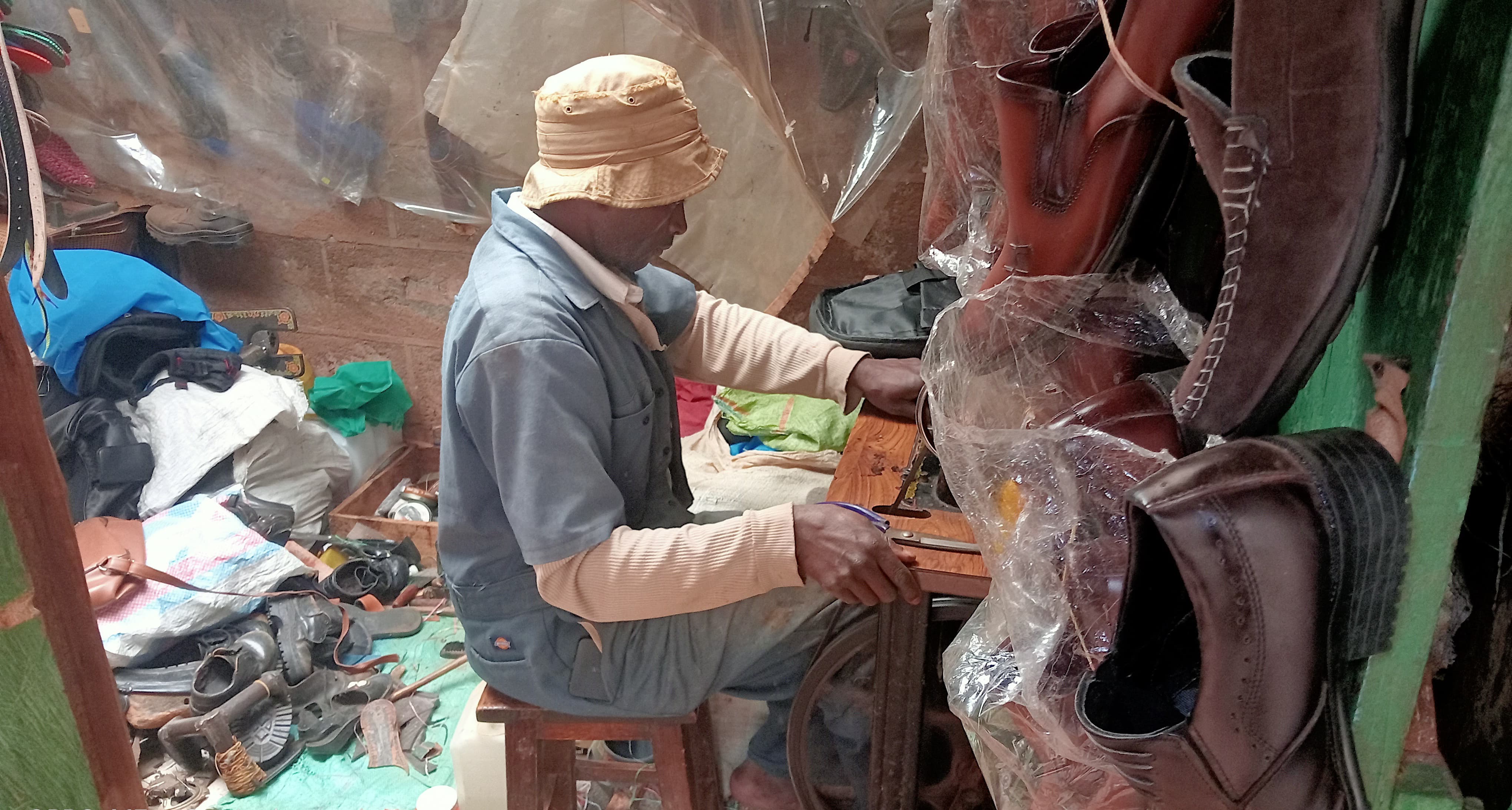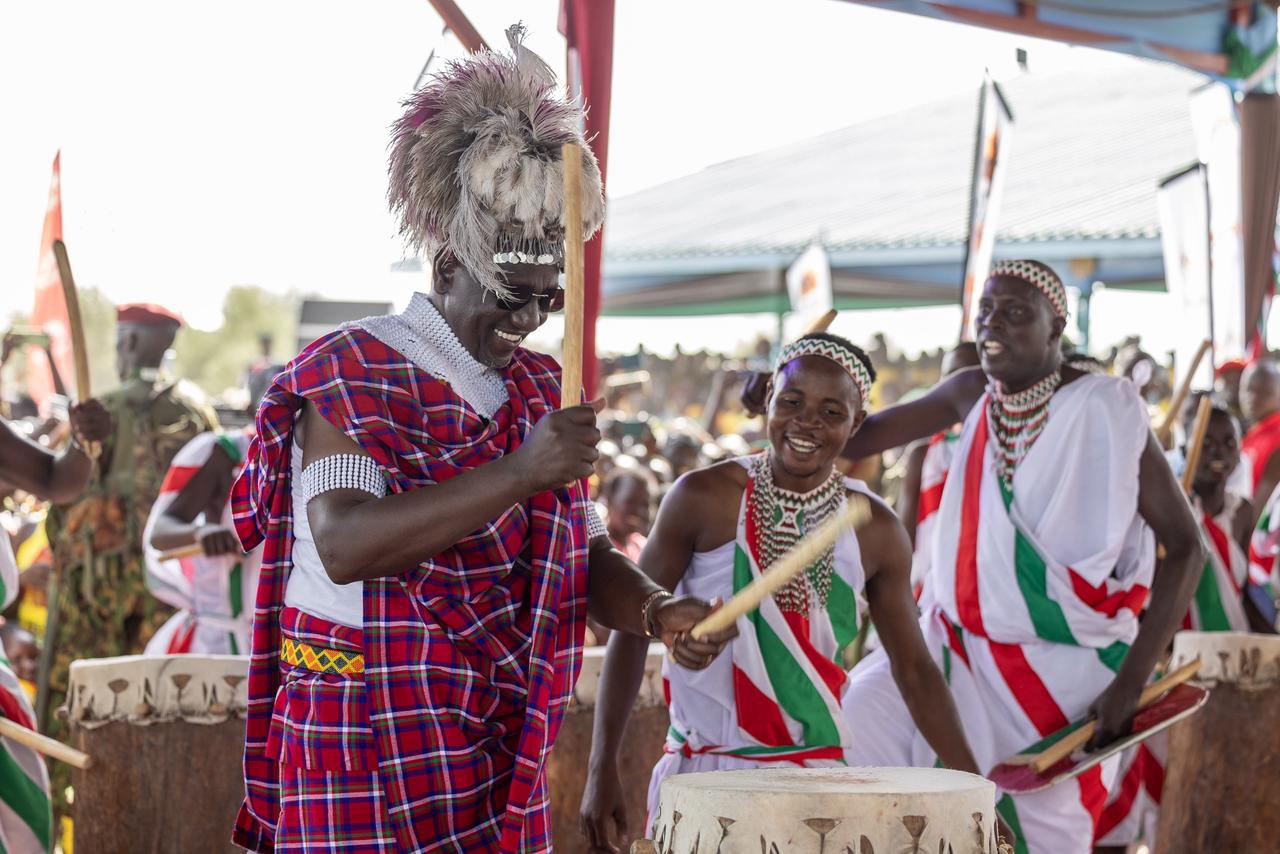
In the quiet corridors of Chomo Shopping Centre in Gatanga, Murang’a county, sits a modest workshop filled with the rich scent of leather and the steady rhythm of a hammer tapping against a sole.
Here, Joseph Gitau, affectionately known as Fundi Gitau, has built a life rooted in dignity, creativity, and resilience through the craft of leatherwork and shoemaking.
Speaking to KNA, Gitau shared the story of a journey that began more than two decades ago, a journey marked by challenges, purpose and determination.
Gitau is not just a cobbler. He is an artisan whose skills stretch far beyond shoe repairs.
With unmatched precision, he handcrafts school bags, belts, Bible covers, briefcases, wallets, and a variety of other leather accessories.
“This work is not just about shoes. It’s about making something people can wear with pride, something strong, lasting, and made with care,” he says, holding up a finely stitched leather belt.
His career began with a two-year shoemaking and leatherwork training course, where he learned not only technical skills but also the discipline and patience the trade demands.
That training, he says, planted the seed for a lifelong passion.
Today, Gitau works alongside a small team of local artisans, creating men’s shoes that range from classic office designs to stylish weekend loafers.
Together, they blend modern trends with authentic handcraft techniques.
“I enjoy working with others to develop new designs. It helps us learn from each other, and I believe one day we can grow into something bigger,” he says.
His dream is to establish his own shoe brand, complete with a logo, custom designs, and a workshop that supplies footwear to Kenya and beyond.
“It’s my wish to see a shoe with my name on it being worn across the country. That would be the peak of my journey,” he says with a hopeful grin.
Despite his passion, Gitau has faced numerous challenges. He grapples with the high cost of raw materials, stiff competition from cheap synthetic imports, and fluctuating customer traffic.
“In the past, thieves have broken into my shop and stolen from me. Some customers also take advantage of my trust. They bring shoes for repair, and after I use my time and materials, they never come back to pay and pick their repaired shoes,” he recalls.
Yet he remains optimistic. “It’s never a dull day for me because even if I don’t get many customers, one or two will always stop by,” he notes.
From this humble workshop, Gitau has managed to raise and educate his children, build a home, and fund his own development projects, all without loans or external aid.
Over the years, his workshop has also become a training ground. He has mentored young men, freely shared his knowledge and guided them through the trade.
While some of his trainees have since opened their own stalls, others were discouraged by the demands of the work.
“It’s not just about your hands. You need the right attitude. You must love what you do, and do it even when no one is watching or clapping,” he explains.
Gitau continues to encourage young people to embrace skilled trades and take pride in their work.
“Whether you are shining shoes, making chapati, or braiding hair, do it with love. Don’t look down on your work. That’s the secret to growing any business and building yourself,” he advises.
His greatest joy, he says, comes from small but powerful moments such as seeing school children in clean shoes he repaired, or men walking confidently in footwear shaped by his hands.
His workshop may appear modest, but to many in Chomo, it stands as a symbol of hard work, resilience, and the power of skilled hands to shape a meaningful life.
As dusk settles over the shopping centre, Gitau carefully folds away his tools and dusts off his workbench.
Tomorrow, as he has done for decades, Fundi Gitau will return, not just to make shoes, but to continue crafting dignity, nurturing dreams and stitching together a lasting legacy.
















